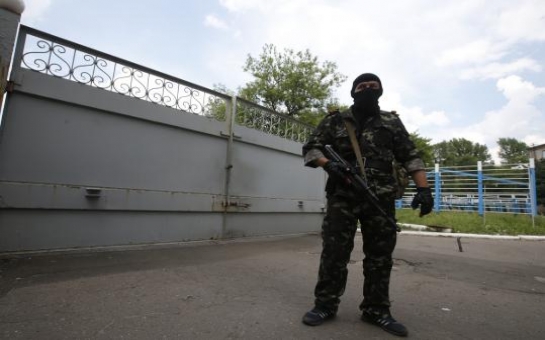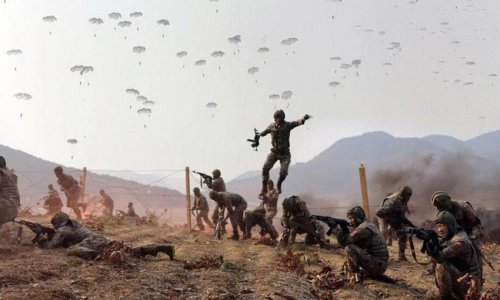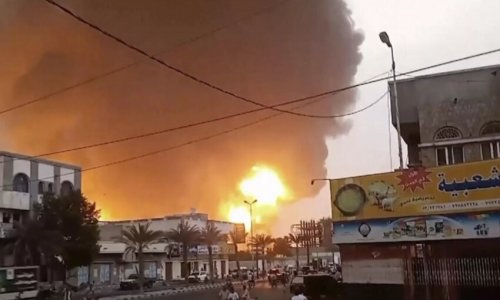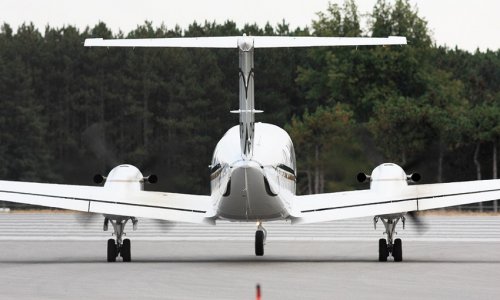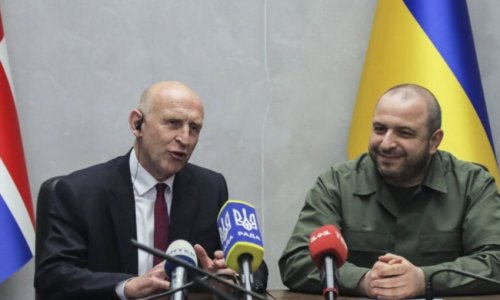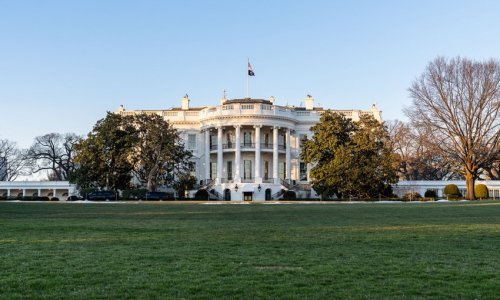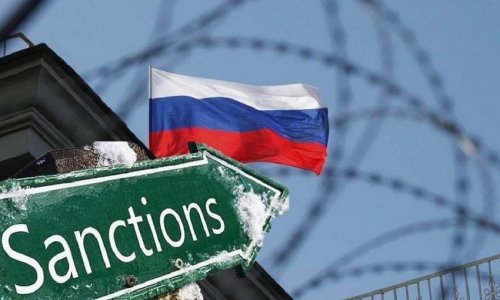Ukraine's government vowed on Friday to press ahead with a military offensive against separatists, despite a deadly attack on an army helicopter, amid increasing reports that fighters from Russia have been involved in rebellions in the east.
President-elect Petro Poroshenko, who scored an overwhelming first-round victory in a poll on May 25, swore to punish those responsible for the shooting down on Thursday of the helicopter near Slaviansk, which killed 14 servicemen including a general.
Acting Defence Minister Mykhilo Koval, repeating charges that Russia was carrying out "special operations" in the east of Ukraine, said on Friday that Ukrainian forces would continue with military operations in border areas "until these regions begin to live normally, until there is peace".
Elsewhere in Ukraine's troubled eastern regions, a separatist group detained a second four-person team of monitors of the Organization for Security and Cooperation in Europe, the Vienna-based OSCE said. Last Monday separatists in another area detained a four-man OSCE team and have not yet released them.
Ukrainian authorities have long alleged that the rebellions have been fomented by Moscow among the largely Russian-speaking population, which is especially vulnerable to cross-border propaganda hostile to Kiev's "Euro-Maidan" revolution that overthrew Moscow-backed President Viktor Yanukovich in February.
Reports by Ukrainian border authorities and journalists on the ground now appear to show increasing evidence of direct involvement by fighters from Russia in the rebellions that erupted two months ago in the wake of Russia's annexation of Crimea.
According to these reports, fighters may be coming into Ukraine from former hotspots in Russia and its North Caucasus fringes such as Chechnya whose own troubles in the past 20 years have spawned a proliferation of armed groups.
Ukraine's authorities say Russian border guards are doing nothing to stop fighters crossing the long land border from Russia, along with truck loads of ammunition and weapons.
In the latest such report, Ukrainian border guards said on Friday they had seized a cache of weapons including guns, machine-guns, grenade-launchers, sniper rifles and 84 boxes of live ammunition in two cars they stopped as they crossed from Russia.
A total of 13 people were detained, the border guard service said in a statement on its website.
Reuters correspondents in Donetsk, an industrial city and one of the main separatist centres, saw coffins loaded onto a vegetable truck on Thursday and driven off after being told by rebels that "volunteers" from Russia killed earlier in the week in an army offensive were being repatriated.
BODIES
An official of the Ukrainian border guard service said on Friday that bodies of slain Russian nationals were being allowed to return to Russia for humanitarian reasons.
"We don't need them to fertilise the land of Ukraine," Serhiy Astakhov, an aide to the head of the border guard service, said in Kiev in reply to a journalist's question.
Interior Minister Arsen Avakov says weapons that could only have been brought in from Russia were found at the scene of Donetsk airport after it was cleared of rebels.
The reports have revived Russia-West tensions that had eased slightly after Moscow pulled back thousands of its troops from the border with Ukraine in what the United States described as a "promising sign".
The U.S. State Department said on Thursday that Secretary of State John Kerry had pressed Russian Foreign Minister Sergei Lavrov to end all Russian support for separatists and call on them to lay down their arms.
Czech Foreign Minister Lubomir Zaoralek said Russia was clearly behind the violent unrest, though there were no immediately effective steps the West could take to stop it.
Poroshenko, a 48-year-old wealthy businessman who has emerged as a national leader from six months of turmoil, will plunge into a hectic round of meetings with world leaders next week with the fate of his country on their minds.
He will hold talks on the crisis with U.S. President Barack Obama in Warsaw on June 3-4 when both men attend events marking Poland's emergence from communist rule.
Then later at the end of the week in France he will have the opportunity to meet Russian President Vladimir Putin, as well as European leaders, at an international gathering marking the "D-Day" World War Two landings in Normandy.
Poroshenko voiced support for a resumption of the military drive against the separatists as soon as it became clear he had been overwhelmingly voted in as president last Sunday. The day after the vote, Ukrainian forces attacked rebels who seized Donetsk international airport, killing 50 of their number in fierce airstrikes.
Poroshenko, due to be inaugurated on June 7, has vowed to punish the perpetrators of the attack on the Ukrainian helicopter.
In a step to resolving a long-standing row over gas deliveries which has long bedevilled Ukraine's relations with its main supplier Russia, Prime Minister Arseny Yatseniuk said Ukraine had paid $786 million to Russia in back payments.
Russia's energy minister said in Berlin on Friday that talks aimed a settling a gas debt which Gazprom, the Russian state gas monopoly, says will be at about $5.2 billion by June 7 should be able to continue next week.
Donetsk, an industrial hub of 1 million where strategic buildings are being held by rebels, was quiet on Friday. But the airport violence brought a subdued air to the last day of the school year when school-leavers usually celebrate in the parks with champagne and ice-cream.
Long lines were forming at the city's railway station following Monday and Tuesday's clashes as many people headed out of the city for safety reasons.
Vita, a middle-aged woman waiting with her daughter and little granddaughter for a train to Moscow, said: "We are really concerned with what is going on, I need to take away my pregnant daughter. We'll leave her with my sister in Moscow and come back to my husband who stayed at home with all our belongings."
Bakudaily.az

